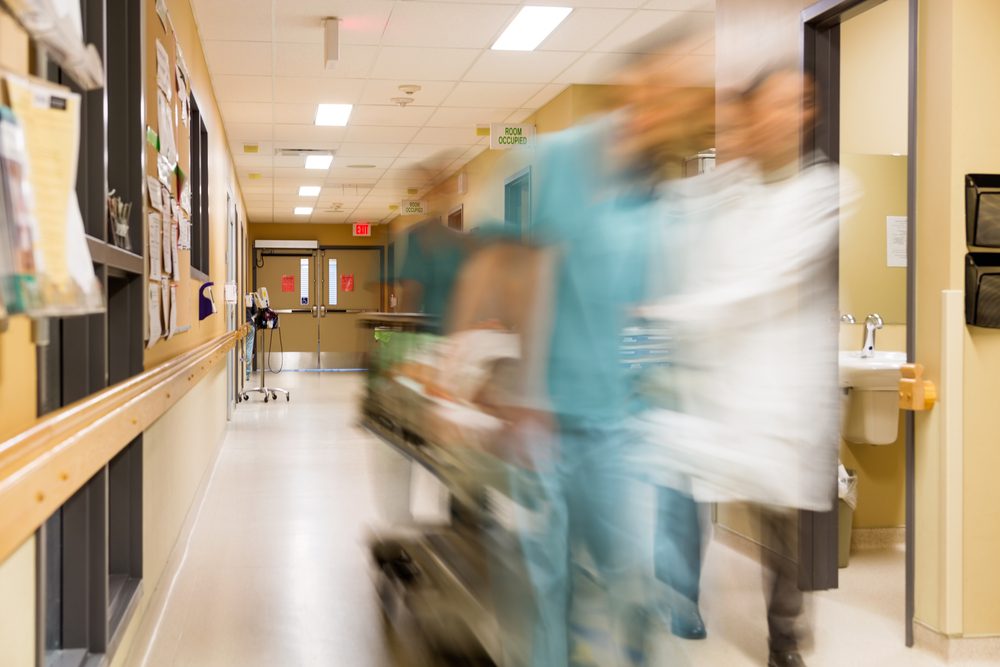Philadelphia Hospital Infection Lawyers
Holding Medical Professionals Responsible for Their Actions Throughout Pennsylvania & New Jersey
When you go to a hospital for any reason, you are there to get better. You may be giving birth, setting a broken arm, or getting surgery – no matter what brings you to the hospital, you have a reasonable expectation to be kept safe from preventable infections. If you or a loved one has been harmed by an infection caused by a medical professional’s negligence, our team of Philadelphia hospital infection attorneys is prepared to help you.
Call Gay Chacker & Ginsburg Trial Lawyers to schedule your free consultation.
Types of Hospital-Acquired Infections
Any time a person is admitted to a hospital, the chances of contracting an infection increase. This is especially true when a patient goes in to give birth or undergo surgery.
These hospital-acquired infections can include:
- Methicillin-resistant Staphylococcus aureus (MRSA)
- Vancomycin-resistant enterococci (VRE)
- Clostridium difficile (C.Diff)
- Necrotizing fasciitis (flesh-eating bacterial disease)
- Central line infections
- Sepsis

How Infections Are Spread in Hospitals
When a patient is admitted to a hospital, they become susceptible to infections, even ones they didn’t have before their stay. How long the patient is in the hospital and the procedure they receive increases the likelihood of acquiring an infection, which means they may have to be there longer and undergo more treatments that can lead to additional costs. The spread of bacteria in a hospital is often preventable, and a patient contracting an illness or dying from an infection can be an indicator of inadequate medical care.
Health-care associated infections are contracted in several ways, including:
- Direct contact: If a bacteria or virus from one patient comes in contact with a health care professional’s skin or protective clothing, and they touch a susceptible patient, that patient can acquire the infection.
- Bodily fluids: When a person coughs, sneezes, or talks, droplets of bodily fluids can be propelled onto someone or something else. A patient can become infected if they come into contact with the contaminated droplets.
- Airborne: Some bacteria and viruses, such as tubercle bacilli, can remain in the air. If health care staff does not wear proper protective gear or cleaning techniques, the airborne infection can spread to a susceptible patient.
- Common vehicle: Many patients can become infected when they are exposed to contaminated common vehicles, such as food, water, or medications.
Because health care professionals are treating patients who are more susceptible to infections, they must adhere to various standards to ensure safety. Unfortunately, if they don’t keep equipment clean, wear protective gear, or maintain proper hand hygiene, they put the health and lives of patients at risk.
Determining Who Is Responsible After a Hospital Infection Lawyers in Philadelphia
You may be eligible for compensation if your medical team did not carry out the proper care before, during, and after your treatment, including the administration of drugs or other protective measures.
Consent forms are normally used to authorize physicians to deliver treatments and can be used to defend cases in negligence in court. Normally, these forms are signed before surgical procedures in the hospital. Some sections of the form may make the patient aware of the risk of infection. Our attorneys will diligently assist you in determining the extent to which parties represented in your case are responsible for hospital injuries and infections. This can simplify the process of identifying what your hospital is liable for.








